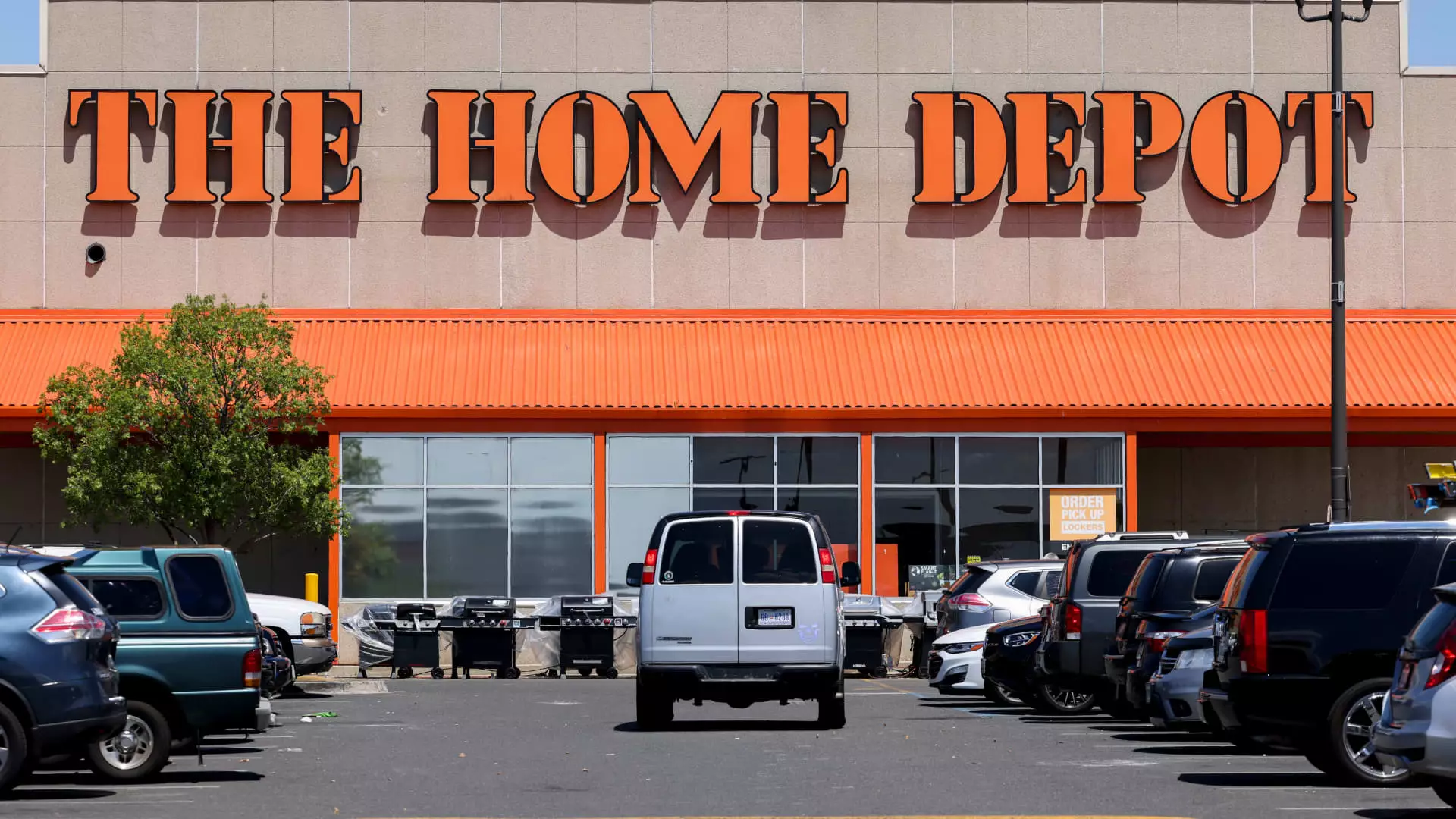Wall Street’s shifting views often dictate the performance of retail stocks, and currently, analysts are optimistic about Home Depot while expressing caution regarding Best Buy. On Friday, the Telsey Advisory Group, a notable player in retail market analysis, upgraded Home Depot’s stock rating from a hold to a buy-equivalent outperform. This change signals a robust belief in the company’s ability to thrive amidst market fluctuations, highlighted by the firm’s revised 12-month price target of $455 per share, up from $360—a promising forecast suggesting a potential upside of nearly 14% from latest trading levels.
Investors are eagerly awaiting Home Depot’s third-quarter earnings report, which is scheduled for release before the opening bell on Tuesday. Analysts anticipate some “continued softness” in Q3 sales, largely attributed to post-pandemic market adjustments. However, Telsey sees rich opportunities for growth by 2025, spurred on by lower mortgage rates and significant recovery efforts related to natural disasters. Such external factors, along with a likely improvement in housing demand as comparisons to the pandemic years become more favorable, are expected to give Home Depot a competitive edge in the home improvement sector.
Home Depot’s business model has consistently been resilient; Telsey emphasized the importance of its “pro business” which caters to larger, more intricate projects, further establishing Home Depot as a trusted partner for both professionals and DIY enthusiasts alike. Analysts maintain a positive outlook, predicting that Home Depot will outperform the S&P 500 by 2025.
The overall macroeconomic trending appears to favor Home Depot. Analysts are buoyed by signs of economic resilience and moderating inflation levels. The recent decision by the Federal Reserve to ease monetary policy, including an interest rate cut, might pave the way for more accessible mortgages, thereby reigniting consumer interest in home ownership and remodeling projects. The substantial reliance of homebuilders and new homeowners on Home Depot paints a picture of a company positioned to capitalize on the evolving market.
This week, Home Depot’s stock witnessed an uptick of over 2.5%, driven by overall market rallies in the wake of a swift resolution to the U.S. presidential election. Indeed, following a dip earlier in the year due to less-than-ideal earnings figures and a cautious outlook, the stock has demonstrated marked improvement, leading to increased investor optimism.
However, veteran investor Jim Cramer has meticulously pointed out a critical factor: while the groundwork for growth is laid, the benefits linked to Fed easing usually bear fruit after a lag of about six to nine months. Investors must display some patience as they await tangible improvements in the housing sector following the Fed’s actions. Cramer cautioned against selling Home Depot stocks after the keynote earnings report, emphasizing that the immediate results may not fully capture the positive outlook going forward.
In stark contrast to the buoyant predictions surrounding Home Depot, Best Buy faces a more turbulent horizon. Citi Group downgraded its price target for Best Buy stock, reducing it from $115 to $109, while still retaining a buy rating. The fund’s analysts pointed out that the incoming administration’s expected tariffs on China could create significant pressure for Best Buy, a retailer heavily reliant on imports from the country.
Despite these challenges, Citi does highlight that the anticipated tech-driven upgrade cycle, particularly surrounding artificial intelligence, remains a glimmer of hope for Best Buy. As consumers grow increasingly inclined to invest in the latest technology, the retailer stands to benefit from bolstered sales in upgraded phones and computers. However, the looming threat of tariffs introduces uncertainty, as further price increases on gadgets could dissuade budget-conscious consumers.
The stock performance of Best Buy has been lackluster, declining approximately 2.5% this past week. Analysts, including those at Citi, previously took steps to mitigate risk by trimming their positions on the stock prior to the recent elections—a sensible precaution given the ongoing fluctuations.
Though Home Depot and Best Buy operate under the same retail umbrella, their outlooks could not be more different. Home Depot appears poised for growth as it adapts to exciting opportunities in the housing market, while Best Buy must navigate the uncertain terrain of potential tariffs and an evolving technological landscape. As we approach Best Buy’s next quarterly earnings report on November 26, investors may need to keep a keen eye on both teams of analysts and market conditions, discerning the pathways that each retailer will take in the latter half of the fiscal year.
Investors must remain engaged, balancing their portfolios with both caution and optimism, recognizing that in retail, fortunes can shift dramatically, dictated by broader economic currents and consumer behaviors.

